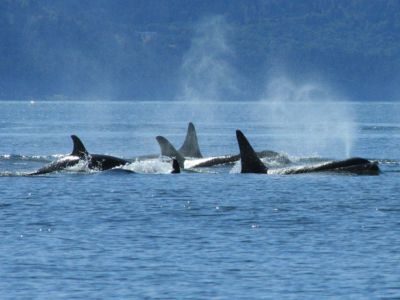Economic and Social Impacts of Measures to Protect the North Atlantic Right Whale (NARW) and Southern Resident Killer Whale (SRKW)
Client:
Transport Canada
Location:
Ottawa, ON, Canada
Dates:
October 2019 to October 2020
Background:
Hatfield was hired by Transport Canada to undertake a study of the socio-economic impacts of measures it has put in place to help protect the endangered North Atlantic Right Whale (NARW) and Southern Resident Killer Whale (SRKW). The specific purpose of the project was to understand the linkages between protection measures and potential social and economic effects that might be experienced by marine sector stakeholders, local communities, First Nations, the cruise industry, and marine shipping and other components of the marine supply chain.
Specific objectives of the project included to:
- Validate the results of previous studies and produce updated and revised quantitative and qualitative analysis of the measures implemented in 2017 and 2018;
- Produce a methodology and assess the quantitative and qualitative impacts of new measures put in place for the 2019 season; and
- Forecast the long-term economic impacts of the protection measures at local, provincial and national scales.
The project included an environmental scan of recent published and ‘grey’ literature, and a detailed review of previous economic impacts assessment reports prepared for Transport Canada in 2018 and 2019. We also undertook primary research deploying a suite of data collection tools and analytical approaches.
At the local/regional scale for each coast we used an online survey and semi-structured key informant interviews in combination on a purposive sample of specific groups and representatives participating in the marine economy. We collaborated with Transport Canada to identify and develop a database of potential respondents across various east coast and west coast marine sector or marine-oriented groups including port authorities, cargo shipping companies and agencies, the cruise ship industry, commercial, recreational, and Indigenous fisheries, whale watching and other marine tourism operators, and local communities.
To understand social and economic linkages at a national scale we applied a web-based survey of a nationwide, stratified sample of Canadian households. The survey produced a statistically valid assessment of how Canadians value the protection of NARW and SRKW. Using a measure of benefits approach our team did a cost-benefit analysis of Canadians’ “willingness to pay” for the protection of NARW and SRKW yielding an illuminating analysis of how Canadians value both species of whale in comparison to other social and economic parameters. ’
The final report provided a discussion of results, uncertainties, and recommendations for policy-makers and regulators. The results of the study were also presented in an online forum to a broad audience including representatives from Transport Canada, Department of Fisheries and Oceans and other federal agencies.
Services Provided:
- Project management; and
- Primary research using financial impacts online survey and key/expert informant interviews.
